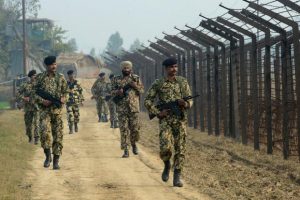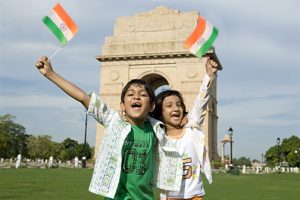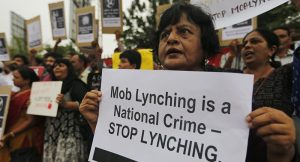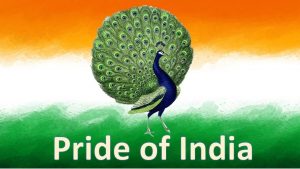Bhubaneswar: Tomorrow is August 15. No, we are not talking about big ticket online sales, decorated malls and family outings on a public holiday. It’s about our Independence Day, the real thing.
Like every year, India is on a patriotic high right now. And the recent scrapping of Article 370 by the Centre, integrating Kashmir to the Union of India, has added to this overwhelming nationalistic fervour.
So what is it about us Indians and patriotism that have triggered high decibel debates on print, electronic (Arnab Goswami anyone) and social media? What is the psychology working behind this devotion to the country? Odisha Bytes wants to know (wink):
Belonging & Safety

We humans have an innate need for belonging, like in a group, and seeking safety in numbers. And these needs, fuel our patriotic feelings of belonging to a country and sense of security within its borders.
In his study, Psychology of Patriotism, US psychologist Michael J Bader explained that national fervour is compelling because it promises to satisfy some of our deepest psychological needs.
He further said all forms of patriotism share similar psychological dynamics. “Patriotic symbols such as the ‘nation’—including its manifestations in images like the flag or the founding fathers—represent the fulfillment of our longing for connectedness and safety. In this sense, the nation is a metaphor for a family.”
Happy People

Other studies have reported that nationalism makes people happy.
For instance, a report in the journal, Psychological Science found that greater national pride was correlated to greater personal well being. The study argued that individuals who relate nationalism with respect for a country’s institutions and values, rather than race or religion, are the most content.
This reference to correlating national pride to race, religion and ethnicity is a warning signal.
Danger Signs

In his study, Bader went on to warn that the psychological needs for belonging and safety make us vulnerable. And these vulnerabilities can be exploited — “for good or evil”. The discrimination of minorities and xenophobia of outsiders are two such evils.
According to researchers, humans don’t only have the tendency to form groups, they also tend to favour their own group over others. This spurs some people to discriminate against minorities, to put them down. Why? Because humans love to stick to whatever is familiar and this makes whatever is different to be threatening.
This threat perception is linked to survival.
Survival & Patriotism

Since humans have an intense need to survive, they find themselves strongly attached to groups. And it makes a lot of sense.
A person’s chances of survival become much higher as he joins a certain group. In other words, the survival of the group as a whole guarantees the survival of its members. Thus, one of the main reasons behind patriotism is the desire to survive. Of course, survival here includes both staying alive and living a good life.
If anything threatens a nation, then the individual will feel threatened as well. This could either happen on the conscious or unconscious level, but both can lead to intense patriotism. This is also why people sound more patriotic when the nation is on the brink of a war, and the reason is they are afraid.
Ego For Motherland

Patriotism is also linked to a person’s ego. A person raised in a certain country starts identifying himself with that place. And the identification with the motherland goes to such an extent that any harm, real or imagined, to that country is considered a direct harm to him.
So, tomorrow, when you forward those “Happy Independence Day” and “Bharat Mata Ki Jai” messages on social media, just pause for a moment to reflect: Is it out of a genuine sense of patriotism, subconscious fear or ego that makes you do so?



